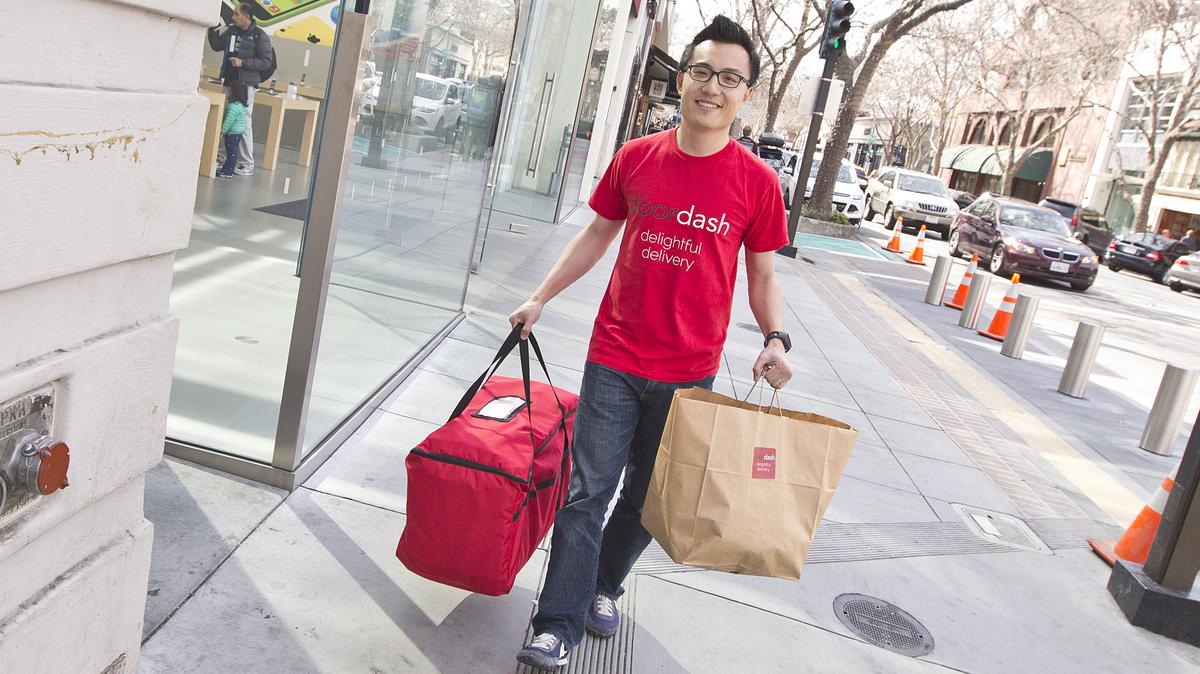
Donald Trump believes that it is immoral to move a factory overseas. That was the upshot of White House Press Secretary Sean Spicer’s pre-inauguration comments, summarizing the new administration’s position on trade. His remarks should cause deep concern to anyone who values trade as part of a free society.
The good news, according to Spicer, is that tariffs aren’t definitely a part of Trump’s game plan. However, the president is very concerned about “American companies who go offshore, get rid of American jobs, and then want to sell back to the United States.” This is something Trump just “doesn’t think is right.”
What sorts of things do we normally describe as “just not right”? Murder. Fraud. Outsourcing?
Many conservatives find this ridiculous, but normal people are easily persuaded to see outsourcing as a kind of moral malfeasance. Economists might tell them that companies do better to service “the market” rather than their own employees. Economists be damned! Flesh-and-blood humans need jobs, not pretty speeches about the glory of laissez faire. Men matter, but markets seem like (at best) an abstraction, or (at worst) the tool that enables the privileged to exploit the poor.
This Idea Can Resonate for Good Reasons
Most Americans aren’t opposed to free trade as such. They’re not interested in the details of trade policy. But they easily identify with the desolation of the newly unemployed. Most of us understand that losing a job can be a bruising and humiliating experience. When large factories move overseas, scores of families suddenly find themselves grappling with loss and anxiety.
The effects can ripple outwards, as whole towns are plunged into economic depression. People start to leave a once-thriving region, and shops go out of business as community life dwindles. These are serious human costs. It is essential that defenders of free trade not try to deny the real suffering that outsourcing can cause.
Let’s be honest. Of course most people feel more sympathy with the demoralized, desperate-for-work father than with the poindexter economist. A populist like Trump knows how to exploit those sympathies, so we should expect to fight some uphill battles in our efforts to defend free trade. We need to keep making the case that even when the costs of free trade are high, the costs of industrial policy will generally be much higher.
Mr. President, Have Pity On the Working Man
In fact, Trump has been tapping into this surging emotional current for many years. Some might find it strange that the former host of “The Apprentice” would now be playing Superman on behalf of the down-and-out American worker, making back-room sweetheart deals to save this or that city a thousand manufacturing jobs. Wasn’t hard-nosed business acumen part of Trump’s celebrity image? Why do people suddenly accept him as the good guy?
This query betrays a misunderstanding of the problem. Apprentice-screening Trump watched his would-be employees carefully, rewarding talent and delivering the bad news personally if workers were found wanting. It makes a curious kind of sense that struggling rust-belt Americans would thrill to the man who looks a hapless apprentice in the eye and announces, “You’re fired.”
That iconic scene infuses authority and quasi-moral judgment into a process many experienced as empty and basically inexplicable. Their jobs blew away on the winds of soulless global currents, and according to the poindexter economist, they aren’t even entitled to the comfort of hating someone for it.
When Trump (or his representatives) tell us that outsourcing is wrong, they gratify the yearning many Americans feel for a meaningful explanation of what happened. Nobody wants to hear that their life was upended by a mysterious Invisible Hand. Far more satisfying to be told that you were steamrolled by unfeeling capitalists who value profits above people. It’s just not right.
The Paternalistic Employer
This story seems especially plausible insofar as Americans today have strong intuitions already about the relationship employers should have with their employees. Those intuitions have been shaped over the past two centuries as the modern world searched for social solutions to the problem of dehumanizing labor.
Karl Marx was not the only one to worry about alienation as people started leaving their farms and workshops to take up their places as human cogs in the industrial machine. Conservatives and traditionalists contemplated similar questions within a different philosophical framework. Where can people find meaning when their days are devoted to menial tasks that neglect their rational powers? How do we prevent widespread destabilization among ordinary citizens, as market forces continue to undermine traditional social supports?
In the nineteenth and twentieth centuries, paternalistic employers were the primary solution to worker alienation. By expecting employers to abide by certain expectations (sometimes codified in labor laws or negotiated through unions) we ensured that human needs were not swallowed up in the river of market forces. State benefits also played a role, of course, in keeping people warm and fed.
It was widely recognized, however, that the state couldn’t fully replace the paternalistic employer. The latter could have a personal relationship with his employees, and besides, he owes them. Without them his factory, mine, or plantation will grind to a sudden halt. So it’s reasonable to expect him to assume some responsibility for the working man and his family.
Catholic social teaching emphasizes this point again and again. Although state benefits might sometimes be a necessary “patch” in periods of instability, it’s better and more dignified for people to receive what they need from employers, as earned compensation for honest work. Minimum wages, labor unions, and a range of other labor principles are all built around this fundamental idea. Protect workers from the ravages of modernity by thickening the paternalistic bonds between employer and employee.
A whole range of people (from far-left Marxists to right-leaning “Rerum Novarum” devotees) are still stuck in this paradigm. They diagnose our current social ills as the predictable consequence of unethical labor policies. They urge us to revivify our labor unions, raise our minimum wage, and help people to re-discover the dignity of ordinary work. It’s Trumpian industrial policy.
These people have glimpsed something true, but they’re missing a very important piece of the puzzle. Paternalistic labor theory was built on the assumption that the work itself would always be needed. What happens when it isn’t?
The Search for Dignity
The paternalistic labor model is anachronistic, or rapidly becoming so. Arguably, it served an important function back when toiling proletarians were a sizable subset of society. As proletarians move closer and closer to extinction, their protective armor becomes more of a sham.
Properly understood, outsourcing really isn’t a violation of paternalistic employer norms. Rather, it is a sign of the model’s waning relevance. As we keep piling responsibilities on the shoulders of employers, more and more decide that the arrangement just isn’t worth it to them anymore. They’ll take their business elsewhere.
In our “damn the man” indignation, we may be tempted to blame heartless capitalists for precipitating so much pain. Let’s be fair, though. Even accounting for the human element, a labor contract should still represent a mutually beneficial arrangement. It isn’t fair to demand that employers take on substantial obligations to people they’d prefer just not to employ at all.
Outsourcing, of course, is only the first stage in this tectonic shift. Even foreign labor may rapidly become irrelevant as automation advances. Our forebears would probably expect us to rejoice. No need to work the assembly lines! Now we can all get busy writing poetry, pushing the boundaries of human knowledge, or just spending quality time with our kids. What a gift!
It doesn’t feel like a gift, though, to people whose lives, communities, and social structures were bound up in the paternalistic labor model. They find themselves in the unhappy position of pleading, not just for support, but also for jobs that make it feel dignified to accept that support. The harsh truth is that it is not possible to meet this demand honestly. The more we twist the system to make workers feel useful, the less useful they’ll actually be.
At some point we’ll have to give up, let the economy shift, and allow people the dignity of making a bona fide contribution. That shift will be all the more painful, though, if we keep resisting the inevitable. Instead of doubling and tripling down on an outdated labor model, we need to devote our energies to figuring out how central human needs (for stability, community, and meaningful work) can best be met in this age.
Outsourcing Is Not Wrong
Outsourcing causes real pain. Suffering people understandably want someone to blame. But even though demagogues will periodically succeed in capturing those emotions, honest people must continue to make the case for a free and fair economy. We have to help people understand that this, far more than border walls or industrial sweetheart deals, can secure a prosperous future for our children and grandchildren.
The human equation matters. Layoffs are painful and demoralizing, and we should do what we can to help people adjust. Creative destruction has always been difficult, but our lonely, atomized society may make it especially painful for some.
There isn’t a good alternative. Outsourcing is not an injustice; neither is it a scam. It’s just a challenging feature of a changing world. If we want American workers to find dignified, meaningful work, we must dismantle our new president’s shameful campaign to demonize honest employers.









